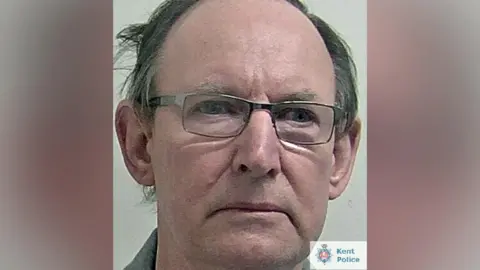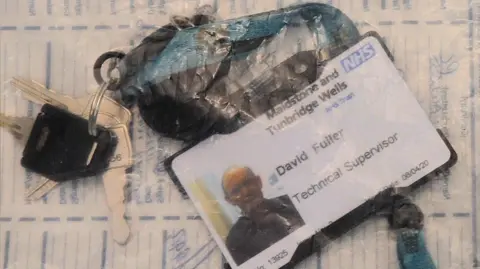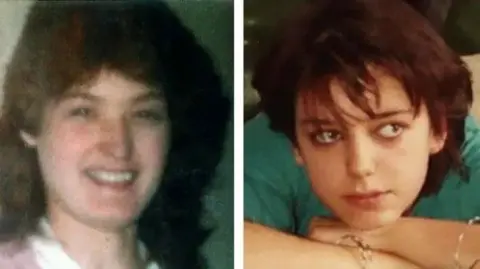Morgue crimes like Fuller's 'could be repeated'
 Kent Police
Kent PoliceMortuary crimes committed by necrophiliac killer David Fuller, who abused at least 100 dead women and girls, could be repeated, an inquiry has found.
Fuller was jailed in 2021 after a trial which heard he had filmed himself abusing female bodies at two Kent hospital mortuaries over 12 years.
The final report of an inquiry sparked by his crimes found that "current arrangements for the regulation and oversight of the care of people after death are partial, ineffective and in significant areas completely absent".
Inquiry chair Sir Jonathan Michael said: "Despite the lack of legal status for the deceased, we all expect our loved ones, and indeed ourselves, to be looked after with the same security and dignity after death as whilst alive."
Warning: Readers may find some details distressing
He said that the weaknesses that allowed Fuller to offend for so long were not confined to Maidstone and Tunbridge Wells NHS Trust, where the killer worked.
"I have found examples in other hospital and non-hospital settings across the country," he said.
"I have therefore come to the conclusion that the current arrangements for the regulation and oversight of the care of people after death are partial, ineffective and, in significant areas, completely absent.
"I have asked myself whether there could be a recurrence of the appalling crimes committed by David Fuller. I have concluded that yes, it is entirely possible that such offences could be repeated, particularly in those sectors that lack any form of statutory regulation."
 Kent Police
Kent PoliceThe maintenance worker, from Heathfield, East Sussex, sexually abused the bodies of more than 100 women and girls aged between nine and 100 while employed at the now-closed Kent and Sussex Hospital and the Tunbridge Wells Hospital, in Pembury, between 2005 and 2020.
Fuller was given two whole-life sentences in 2021 for murdering Wendy Knell and Caroline Pierce and jailed for a total of 16 years for abusing corpses, meaning he will die in prison.
Fuller gained access to morgues using his employee swipe card, choosing times when he knew staff had gone home so the areas were left unattended.
There, he systematically abused at least 101 corpses, the youngest of which was aged nine and the oldest 100 years old.
At his trial, the court heard how he would visit "the same bodies repeatedly".
 Kent Police
Kent PoliceIn November 2023, the first phase of the inquiry, which looked at his employer, found Fuller was able to offend for 15 years without being caught due to "serious failings" at the hospitals where he worked.
Sir Jonathan said the government "must" introduce statutory regulations to protect the "security and dignity" of people after death.
There was "little regard" given to who was accessing the mortuary, with Fuller visiting 444 times in a year – something that went "unnoticed and unchecked", the inquiry found.
 PA Media
PA MediaThen in October last year, Sir Jonathan called for urgent regulation of the funeral industry, which he called an "unregulated free-for-all".
The interim review highlighted alleged incidents including a funeral assistant taking photos of a person being embalmed, of people being left to decompose or covered in mouldy sheets, and the sexual assault of a dead woman by a funeral director in the 1990s.
Warning that the system was fundamentally flawed, he found that due to lack of regulation anyone could set themselves up as a funeral director, work at home and keep bodies in their garages if they wished.
'Urgency of the concerns'
Responding to the inquiry, the Health Secretary Wes Streeting said in a statement: "Every deceased individual deserves to receive the highest standard of care and dignity.
"The Government will work to ensure this is the case, across all settings, be that in the NHS or other settings including local authority mortuaries, hospices, ambulance services, care homes, funeral homes, and faith organisations.
"The Government recognises the urgency of the concerns raised by the inquiry's recommendations and will respond at pace.
"This will include an interim update on progress this year and a final response by summer 2026."
Follow BBC Sussex on Facebook, on X, and on Instagram. Send your story ideas to [email protected] or WhatsApp us on 08081 002250.
